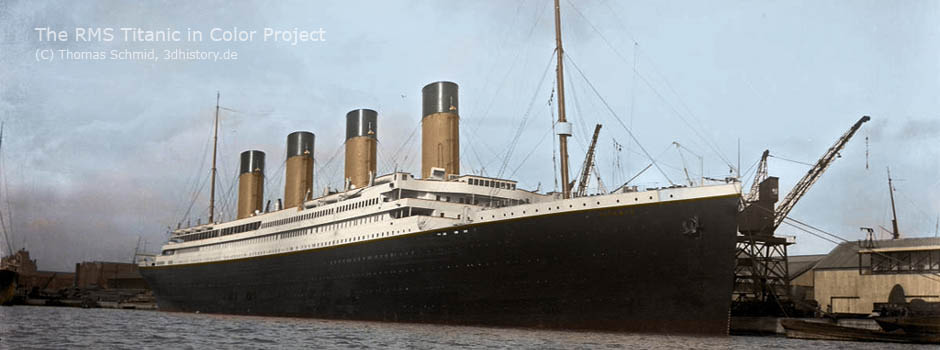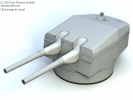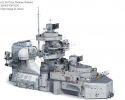BRITISH 9.2-INCH MARK I HEAVY SIEGE HOWITZER
Originally intended for operations against fortress defences, the 9.2-inch howitzer saw general service with the artillery of the British Army during the First World War.
Although the final design of the howitzer was approved only in July 1914, it was in action in France just four months later.
The static nature of trench warfare on the Western Front suited this highly immobile weapon. Movement of the gun and carriage required a 36 hour dismantling operation, and transportation relied upon three purpose-built carriages hauled by horses on traction engines. Although a gun’s lack of range led to the development of a Mark II version, the original 9.2-inch howitzer remained in service throughout the war. By the end of hostilities, some 450 of these weapons had been supplied to the British Army.
The barrel seen here, nicknamed “Mother”, is the original prototype of the 9.2-inch Mark I heavy siege howitzer.
After firing trials in July 1914 it was hastily shipped to France and from October 1914 to July 1915 it served with the 8th and 10th Siege Batteries, Royal Garrison Artillery. The barrel was re-lined in 1917 and returned to France in January 1918.
The carriage is of an identical pattern to the barrel’s original mount.
Technical specifications:
CALIBRE: 9,2-inch (23,4 cm)
WEIGHT: 15 tons (15,240 kg)
RANGE: 10,060 yards (9,198m)
AMMUNITION: 290 lb (131 kg) high explosive








